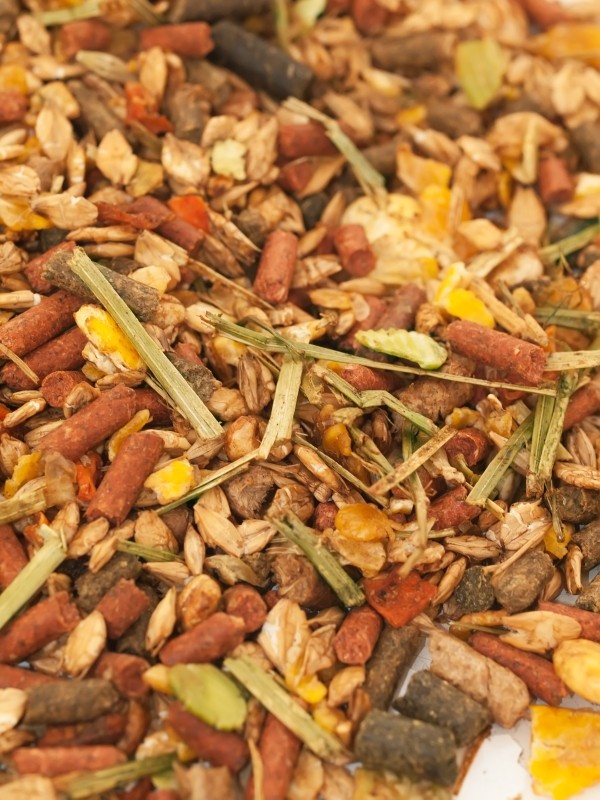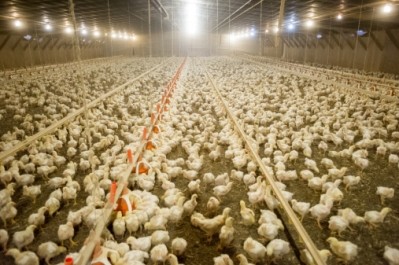A US review comes out in favour of probiotics for maintaining health and boosting growth in poultry

Chasity Cox and Rami Dalloul from the Avian Immunobiology Laboratory of Virginia Tech, in the US, said that probiotic supplementation prior to chick hatch could also be beneficial.
With pressure mounting on the poultry sector to find alternatives to antibiotics due to concerns their use in feed may result in microbial resistance to human antibiotics, the duo said they reviewed the literature in a bid to “shed some light” on the immunomodulating properties of probiotics.
Writing in the journal Beneficial Microbes, the authors concluded that "maintaining a proper balance of intestinal microbiota and strengthening host immunity through the use of probiotics could prove to be effective in preventing and treating enteric infections [in poultry]."
However, they stress that probiotics are "very diverse" and they have varying modes of action dependent on the strains and doses used and the target species.
There is also a knowledge gap, said the US reviewers, in relation to the mechanistic actions of probiotics and how they alter the immune system.
Possible mode of action of probiotics
The ability of probiotics to help maintain a healthy microbial balance within the intestine, to promote gut integrity and prevent enteric disease is reported to be accomplished through three main mechanisms: competitive exclusion, bacterial antagonism, and stimulation of the immune system (Ohimain and Ofongo, 2012).
“Competitive exclusion is the idea that probiotic strains have the ability to maintain normal intestinal microbiota and inhibit establishment of pathogenic bacteria through competition for space, attachment sites, and available nutrients,” said the Virginia Tech specialists.
The authors say probiotic bacteria may produce antimicrobial substances such as short chain fatty acids, bacteriocins. “Lactobacillus reuteri, for example, produces reuterin, a bacteriocin active toward bacteria, fungi, yeasts, protozoa and viruses,” they noted.
Furthermore, many probiotics, predominantly those containing Lactobacillus strains, are presumed to lower the environmental pH through their production of lactic acid, which can also impede the growth of acid sensitive organisms, said Cox and Dalloul.
The integrity of the intestinal tract plays a major role in influencing the performance of poultry. “The gut microbial profile can be manipulated through the use of probiotics in order to create conditions favourable to enhancing performance,” added the authors.
The literature review
FCR and gain benefits
Cox and Dalloul reported that several trials showed probiotic supplementation resulted in improved body weight gain and feed conversion ratios in chickens (Bai et al., 2013; Ignatova et al., 2009; Kabir et al., 2004; Khaksefidi and Ghoorchi, 2006; Nayebpor et al., 2007; Sen et al., 2012; Talebi et al., 2008) and turkeys (Torres-Rodriguez et al., 2007).
And they noted studies indicating probiotic supplementation also has growth-promoting effects comparable to those of avilamycin and chlortetracycline, further promoting it as a viable antibiotic alternative (Bai et al., 2013; Mountzouris et al., 2007).
The review team also referenced research showing the use of probiotics can enhance nutrient utilization, thus strengthening intestinal health and integrity.
“Increased nitrogen and fat digestion has been reported in broiler chicks fed diets containing Lactobacillus bulgaricus (Apata, 2008). Improvements in nitrogen, calcium, and phosphorus retention have also been noted in laying pullets (Nahashon et al., 1994),” they reported.
And the US authors include a study that demonstrated that probiotics ameliorated the negative effects caused by mycotoxins through diminishing villus atrophy (Awad et al., 2006).
Evidence of pathogen control efficacy
Research has also provided evidence that specific strains of probiotics are able to stimulate many aspects of innate immunity by enhancing the barrier function of the intestinal mucosa, wrote the Virginia based scientists.
Probiotics, they continue, have been shown to aid in protection against a variety of enteric diseases in several studies.
The authors reported on a trial where chicks fed diets supplemented with probiotics and subsequently infected with E. acervulina or Eimeria tenella had significantly reduced oocyst shedding (Dalloul et al., 2003, 2005; Lee et al., 2007; Santosh and Gupta, 2011).
They also found a study where Bacillus-based probiotics were shown to reduce lesion severity in E. maxima challenged broilers (Lee et al., 2010b) and another piece of research where the addition of probiotics was deemed efficacious in reducing Salmonella colonization in the ceca, liver and spleen of broiler chicks (Revolledo et al., 2009).
Protection against a Salmonella challenge by probiotic supplementation has also been seen in turkey poults (Grimes et al., 2008; Wolfenden et al., 2011), said the reviewers.
Furthermore, they said trials have also shown a reduction in lesion score severity, mortality, and numbers of C. perfringens due to probiotic treatment during experimentally induced cases of necrotic enteritis (Jayaraman et al., 2013; Knap et al., 2010; McReynolds et al., 2009).
In ovo technology
Cox and Dalloul noted early probiotic applications, especially in ovo technology, could help promote early colonization of beneficial bacteria and stimulate intestinal and immune system development.
The authors reference two studies from De Oliveira et al. (2014) that evaluated the effects of in ovo administration of several commercially available probiotic products regarding hatchability, performance and Salmonella susceptibility.
“Of the products tested, two strains, one E. faecium and the other B. subtilis, were found not to significantly compromise hatchability. De Oliveira and colleagues (2014) noted the quantity of bacteria 24 hours after in ovo administration was increased in the gizzard and ceca of those chicks inoculated with B. subtilis.
During their challenge experiment, chicks inoculated in ovo with B. subtilis and subsequently provided dietary probiotic displayed intermediate performance in terms of feed conversion when compared to Salmonella Enteritidis infected controls that either received no probiotic or the antibiotic Apralan. Furthermore, a reduction in the number of Salmonella positive chicks was observed in birds inoculated with E. faecium.”
Certain data shows no benefits to probiotics in feed
However, the Virginia Tech researchers also found that, despite the plethora of data showing the positive effects of probiotics on performance, several experts have also reported no significant enhancements due to probiotic supplementation (Rahimi et al., 2011; Seifert et al., 2011; Wolfenden et al., 2011).
“These discrepancies could be due to a variety of factors including, but not limited to, strain(s) of bacteria utilized, composition and viability of the probiotic, preparation method, dosage, application method, frequency of application, overall diet, drug interactions, and condition of the animal (Huang et al., 2004; Mountzouris et al., 2007),” said the Virginia Tech poultry specialists.
More research, Cox and Dalloul, is required to further define the dynamic function of probiotics in terms of their immunomodulating capabilities.
“Furthermore, understanding the embryo’s response to probiotics and changes in the local immune responses is essential to enable the manipulation of the microbiota for improved performance and intestinal health,” they added.
The authors said their work was supported in part by the John Lee Pratt Endowment, Star-Labs Inc., and USDA-NIFA Hatch funds.
Source: Beneficial Microbes (Wageningen Academic Publishers)
Published online ahead of print: 10.3920/BM2014.0062
Title: Immunomodulatory role of probiotics in poultry and potential in ovo application
Authors: C.M. Cox, R.A. Dalloul














